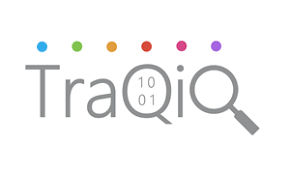Effective cash collection is a cornerstone of financial stability for individuals and businesses. This guide elucidates how cash collection serves as a linchpin in maintaining liquidity by delving into the components of cash flow statements, the role of internal controls, and the analysis of solvency ratios. Hence, it ensures financial stability and enhances overall profitability. Let’s explore the definition and scope of cash collection and more.
Definition and Scope of Cash Collection
Cash collection is the process of systematically collecting and managing cash inflows, a critical aspect of financial stability for individuals and businesses.
It encompasses various considerations, including internal controls, working capital, and the meticulous management of accounts receivable (AR) and accounts payable (AP).
How Cash Collection Works?
Cash management involves the day-to-day handling of cash inflows and outflows, crucial for meeting payment obligations, planning future payments, and maintaining business stability. For individuals, it revolves around maintaining cash balances while earning returns on idle cash.
In the corporate realm, cash management professionals, treasurers, and CFOs play pivotal roles in implementing strategies to oversee cash management effectively.
Cash Collection Through Internal Controls
Internal controls are pivotal in ensuring efficient cash flows within a business. These mechanisms, encompassing various accounting and auditing practices, safeguard against financial mismanagement and fraud.
The role of internal controls extends to meticulous considerations such as managing the average length of accounts receivable (AR) and optimizing collection processes.
By implementing robust internal controls, organizations can enhance operational efficiency, minimize the risk of errors, and foster a secure financial environment, ensuring that cash collection remains a streamlined and effective component of overall financial management.
Cash Collection of Working Capital
Efficient cash collection within working capital is essential for sustaining operational activities. Operating activities, central to the cash flow management of a business, heavily focus on working capital dynamics.
The interplay between accounts receivable (AR) and accounts payable (AP) significantly impacts cash collection. Changes in AR, representing outstanding customer invoices, and AP, denoting pending vendor payments, directly influence the cash position.
Reporting alterations in working capital on the cash flow statement provides a transparent view of the organization’s liquidity.
A positive change signifies increased cash availability, enhancing the company’s financial stability, while a negative change signals potential challenges in meeting short-term obligations.
By aligning cash collection strategies with working capital management, businesses can fortify their financial health and sustain seamless operational functions.
The Cash Flow Statement in Cash Collection
The cash flow statement is pivotal in comprehensively depicting a company’s financial health, with direct implications for cash collection strategies.
- Components of the Cash Flow Statement
This essential financial document comprises three core sections—operating, investing, and financing activities. It meticulously records cash received from accounts receivable (AR), cash paid for accounts payable (AP), investments, and financing transactions.
- Daily Internal Tracking vs. Quarterly Reporting
While components are transparently reported quarterly, internal tracking of cash flows occurs daily. Daily monitoring ensures proactive management of inflows and outflows, offering real-time insights crucial for strategic decision-making.
- Comprehensive Recording of Cash Flows
A robust cash collection approach integrates daily internal tracking with the comprehensive recording outlined in the quarterly cash flow statement. This collaboration enables businesses to optimize their liquidity, navigate financial challenges, and maintain a resilient cash position.
Managing Cash Through Internal Controls
Efficient cash management is contingent upon robust internal controls, the cornerstone for safeguarding financial integrity.
- Considerations in Efficient Cash Flows
Key considerations involve evaluating the average accounts receivable (AR) length and streamlining collection processes. A meticulous focus on reducing the collection period enhances liquidity and operational flexibility.
- Role of Internal Controls in Operational Efficiency and Fraud Prevention
Internal controls play a dual role by enhancing operational efficiency and mitigating the risk of fraud. By establishing stringent procedures and checks, businesses streamline cash-related workflows and fortify defenses against potential financial misconduct, ensuring the integrity of cash management practices.
Cash Collection and Solvency Ratios
In cash management, understanding solvency ratios is crucial for ensuring long-term financial viability and effectively meeting obligations.
- Liquidity and Solvency Ratios Analysis
A complete analysis of liquidity and solvency ratios provides insights into an entity’s ability to meet its financial commitments. Striking a balance between short-term liquidity and long-term solvency is fundamental for sustainable financial health.
- Quick Ratio and Current Ratio
The quick and current ratios are key indicators of an organization’s liquidity. The quick ratio, assessing immediate solvency, considers cash, marketable securities, and receivables, while the current ratio gauges broader financial health by comparing current assets to liabilities.
- Solvency Ratios for Long-Term Obligations
Solvency ratios focused on long-term obligations, such as debt to equity and cash flow to debt, offer a lens into an entity’s capacity to manage extended financial commitments, ensuring stability and resilience in the face of long-term obligations.
Importance of Cash Collection Process
Here are the reasons to indicate the importance of the cash collection process in an organization.
- Liquidity Assurance
Efficient cash collection is paramount for maintaining liquidity, ensuring businesses have readily available funds to promptly meet short-term financial obligations. This agility in managing cash inflows contributes to financial flexibility, a crucial aspect of navigating dynamic market conditions.
- Financial Stability
Cash collection plays a pivotal role in achieving financial stability. Businesses enhance their overall financial resilience by carefully balancing working capital, optimizing accounts receivable (AR) and accounts payable (AP) processes, and fostering positive net changes in the cash flow statement. This stability provides a foundation for sustained growth and strategic financial planning.
- Profitability Enhancement
A well-organized cash collection process positively impacts profitability. It helps mitigate liquidity problems, allowing businesses to plan their finances prudently. The systematic handling of cash flows contributes to enhanced operational efficiency, providing the financial groundwork for investments in growth and innovation.
- Internal Controls
Implementing robust internal controls in cash collection is instrumental in safeguarding an organization against fraud, ensuring adherence to financial regulations, and optimizing operational efficiency. Internal controls create a framework that instills confidence in financial practices and fosters transparency.
- Solvency Ratios Analysis
The analysis of solvency ratios offers a complete perspective on a company’s ability to meet short-term and long-term financial obligations. This understanding is essential for assessing the company’s overall financial health. Hence, it guides business owners to strategic decision-making, and maintaining a sustainable trajectory for long-term success.
Final Thoughts: Improving Cash Collection with TraQSuite
In conclusion, effective cash collection is not just a financial strategy; it’s a proactive approach to financial stability, profitability, and enduring success. As businesses navigate the complexities of cash management, integrating the right tools and strategies becomes paramount.
We present you TraQSuite. With our software solution, businesses can streamline their cash collection processes and fortify their financial foundations for sustained growth and resilience in dynamic economic landscapes.
As businesses strive for excellence in cash collection, our solution emerges as comprehensive. By aligning with the strategies outlined in this guide, TraQSuite offers a robust framework for optimizing cash flows, preventing fraud, and ensuring sustained financial health.



































